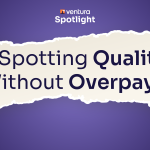The financial world thrives on calculated risks and informed decisions. But let's face it, emotions can cloud your judgement, especially when it comes to stock investment. Fear of missing out (FOMO) is a powerful force, and in the fast-paced world of finance, it can lead to impulsive decisions and costly mistakes. This blog equips you to recognize the pitfalls of FOMO investing and navigate the market with a clear head and a well-defined strategy.
What is FOMO in investing?
FOMO, or fear of missing out, is a common human emotion. In the context of investing, it manifests as the anxiety of missing out on a potential opportunity to make a big profit. We're bombarded with news of overnight successes, record-breaking returns, and social media influencers boasting about their investment wins. This constant barrage can trigger FOMO, urging us to chase hot stocks or investment trends without proper research or due diligence.
What happens when you invest out of FOMO?
Investing based on FOMO can have significant consequences:
- Investing in Unfamiliar Territory: The fear of missing out can lead you to invest in companies or assets you don't understand. This lack of knowledge increases your risk of making poor investment choices.
- Ignoring Risk Tolerance: FOMO can cloud your judgement about your risk tolerance. You might end up investing in high-risk assets that don't align with your financial goals or risk appetite.
- Herding Behaviour: The urge to follow the crowd and "get in on the action" can lead to herding behaviour, where everyone invests in the same thing, driving up prices artificially. This can result in significant losses if the trend reverses.
- Emotional Investing: FOMO can trigger emotional decision-making. You might buy at inflated prices or sell prematurely due to fear of further losses.
How to leave FOMO out of your investment strategy
Here are some strategies to combat FOMO and make sound decisions when you invest in stocks:
- Define Your Investment Goals: Clarity on your financial goals, whether it's retirement planning, a child's education, or a down payment on a house, helps create a long-term investment plan. FOMO becomes less enticing when you have a clear roadmap.
- Develop a Diversified Portfolio: Don't put all your eggs in one basket. Spread your investments across different asset classes (stocks, bonds, real estate) and sectors to mitigate risk. This way, a downturn in one area might be offset by gains in another.
- Know Your Risk Tolerance: Honestly assess your comfort level with risk. Are you a conservative investor seeking stability, or are you comfortable with higher risk for potentially higher rewards? Align your investment strategy with your risk tolerance.
- Do Your Research: Never invest in something you don't understand. Thoroughly research any investment before committing your hard-earned money. Analyse the company's financials, industry trends, and long-term prospects.
- Develop a Long-Term Perspective: The stock market is inherently volatile. Don't expect quick wins or get discouraged by short-term dips. Focus on your long-term goals and stay invested through market fluctuations.
- Invest Systematically: Consider rupee-cost averaging (RCA) or systematic investment plans (SIPs) to invest a fixed amount at regular intervals. This approach helps average out the cost of your investments and reduces the impact of market volatility.
- Stay Informed, Not Influenced: Stay updated on financial news and market trends, but don't let social media hype or celebrity endorsements influence your investment decisions.
- Tune Out the Noise: There will always be stories of overnight successes and hot trends. Don't let the noise distract you from your long-term investment plan.
How to build a FOMO-resistant mindset?
Shifting your mindset is crucial to overcoming FOMO:
- Focus on Your Journey, Not Others': Social media comparisons can be misleading. Everyone has a different investment journey. Focus on your goals and avoid comparing your portfolio to others.
- Celebrate Your Wins: Acknowledge your investment successes, no matter how small. This reinforces positive investment behaviour and boosts your confidence.
- Learn from Mistakes: Everyone makes investment mistakes. Analyse your missteps and use them as learning experiences to improve your future decisions.
- Focus on Controllables: The market is full of factors beyond your control. Focus on what you can control: your investment strategy, asset allocation, and disciplined behaviour.
Remember:
- Slow and steady wins the race. Building wealth takes time and discipline.
- Don't chase get-rich-quick schemes. Sustainable wealth creation comes from calculated risks and long-term investing.
- There will always be "hot" investment opportunities. Don't get caught up in the hype; focus on your long-term plan.
Conclusion
FOMO is a powerful emotion that can derail your investment strategy. By understanding its pitfalls, developing a sound investment plan, and adopting a FOMO-resistant mindset, you can make informed decisions and navigate the market with confidence. Remember, successful investing is a marathon, not a sprint. Stay disciplined, focus on your goals, and avoid letting emotions cloud your judgement. With knowledge, discipline, and a long-term perspective, you can achieve your financial aspirations and build a secure future.
Bonus tips
- Develop a Support System: Surround yourself with people who share your financial goals and understand the importance of long-term investing. Discussing investment strategies with a trusted advisor or financial mentor can be immensely helpful.
- Review Your Portfolio Regularly: Periodically assess your portfolio's performance and rebalance if necessary to ensure it aligns with your evolving goals and risk tolerance.
- Enjoy the Journey: Investing shouldn't be a constant source of stress. Learn about different investment vehicles, stay informed about the market, and enjoy the process of building wealth for your future.
By following these strategies and cultivating a rational approach to investing, you can overcome FOMO and chart a course towards financial success. Remember, the most important investment you can make is in your financial education and discipline.




